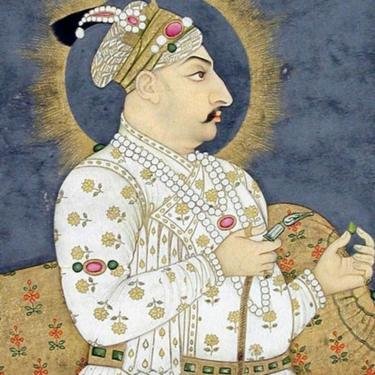12 May 1739 evening The tremendous enthusiasm in Delhi, it is the celebration of celebration in Chagang and Lal Kahin in Shah Jahanabad.
Sharing is spreading the poorer vegetables, paan and food. Fakiris are being paid by paying the money.
In today's court there is Mohammed Shah sitting on the thirteenth floor of the Mughlia Sultanate in front of the Iranian emperor Nadir Shah, but at this time there is no royal crown on his head.Because Nadir Shah had taken the sultanate from them two and a half months ago.
Now after 56 days in Delhi, the time has come for Nadir Shah to return to Iran and now he wants to hand over the reins of Hindustan to Mohammed Shah.
Nadir Shah has turned a bundle of Mughal deposits deposited for centuries and has reversed the pockets of all the rich and influential people of the city.
But it is a Delhi-based Naur Bai, whose mention will come forward, has secretly told that all these things which you have achieved, there is nothing in the light of that thing which Mohammed Shah has in his Turban Kept hidden.

Nadir Shah was consoled by water from Ghagh Sijasdad and Ghat-Ghat. On those occasions that move was called a dash on the river.
He said to Mohammed Shah, "There is a ritual in Iran that on the occasion of happiness, the tigers change between each other, since today we have become brothers and sisters, why should not this ritual be paid."
Mohammed Shah had no choice other than bowing his head. Nadir Shah removed his turban and kept his head, and his turban, his head and his world's famous diamond cohenure, got out of India and reached Iran
Rangila badshah
Owner of this diamond Mohammed Shah was born in 1702 in the reign of his great-grandfather Aurangzeb Alamgir.
His birth name was Roshan Akhtar, although on 29 September 1719, Rajguru Sayyid Bradran gave him the title of Abu al-Fatah Nasiruddin Roshan Akhtar Mohammed Shah after he was placed on the sultanate of a Sultanate-e-Tamuriya just 17 years of age.
His self-respect was 'always colorful'. Who remembers such a long name, so Mohammed Shah has mixed with both the people and they are known and known in this name by Hindus till date.
At the time of Mohammed Shah's birth, Aurangzeb Alamgir had applied a special type of Islam in Hindustan and his first target was to become an artist who had the opinion that he did not follow Islamic principles.
An interesting example was written by Italian traveler Nicolo Manucci.
He says that when the music was banned in Aurangzebi round, the roti was stopped for the musicians and musicians.
After all, thousands of artists got agitated from Juma Masjid in Delhi on the day of Juma, and they began to roam the musical instruments in the form of janazas.
When Aurangzeb saw it, he asked with astonishment, "Whose is this man whom you are being asked for, whose blood is being beaten for this sake?"
They said, "You have killed the music, are going to bury it." Aurangzeb responded, "grave slightly digging."
The law of physics is that every action has a reaction.
This rule also applies to history and human society that whatever is pressed harder it emerges from the same strength.
That is why this happened even after Aurangzeb and during Mohammed Shah's era, all those artifacts came out with their full force, which had been suppressed before them.
Amazing history
Thanks sirji